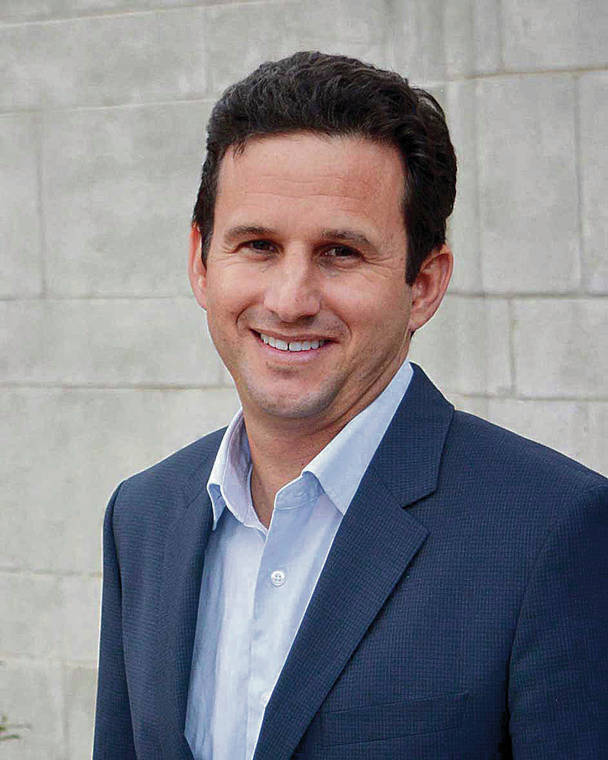Schatz highlights millions in federal aid, more vaccines coming to Hawaii County

SCHATZ
U.S. Sen. Brian Schatz on Wednesday described a shot in the arm for Hawaii County — literally and figuratively.
U.S. Sen. Brian Schatz on Wednesday described a shot in the arm for Hawaii County — literally and figuratively.
During a brief presentation to the County Council, Schatz highlighted how millions in federal aid will reach Hawaii County residents, businesses and government, and said as soon as April, or perhaps May, there will be more coronavirus vaccine available than people requesting it.
ADVERTISING
“We’re very much aware that Hawaii is going through a very rough period,” the Hawaii Democrat said. “There’s hope on the horizon, there’s help on the way and some of it has already arrived — but there are still challenges ahead.”
Schatz said accomplishing herd immunity, where 70% of the population is immune after recovering from COVID-19 infections or through vaccinations, could be more of a challenge in Hawaii, with its historically low infection rates.
Currently, vaccination sites are mobbed with people who are enthusiastic about getting the shot, but there will come a time when that changes, he said. Then it will be government’s responsibility to try to reach the hard-to-reach sector, the skeptical sector, he said.
“We’re in a situation increasingly where we’re going to go from a supply problem to demand problem,” Schatz said.
Only 20.9% of Hawaii Island’s approximately 200,000 people have had at least one dose of the vaccine, and 11.3% have had two, according to the state Department of Health.
Schatz said the money coming into the state through the American Rescue Plan Act, roughly $6.1 billion, should help relieve fiscal pressure and enable government to avoid furloughs and layoffs.
Most immediate for residents are as much as $1,400 a person in direct stimulus payments hitting bank accounts this week and an extension of unemployment benefits through September with an extra $300 a week. In addition, a $3,000 child tax credit will be paid in monthly increments.
The child tax credit is expected to cut child poverty in half, Schatz said, but he added it will expire at the end of the year unless Congress extends it.
“It’s a great start but it’s not a permanent part of the program, and we will fight for it,” he said.
Other aid programs will bring $160 million for critical capital improvements in the state, money for states such as Hawaii, Alaska and Nevada that were “really hammered” by a loss of tourism, $215 million in dedicated Native Hawaiian program funding and money for mental health, farmers and ranchers.
A new $28.6 billion nationwide restaurant program that Schatz said he discussed with the restaurant trade Wednesday morning will provide grants equal to the loss restaurants and bars experienced in 2020.
“Competition will be fierce,” he said.
Another program, the shuttered venues grant program, hasn’t yet been rolled out but it’s aimed at supporting entertainment venues that were forced to shut down because of government limits on gathering.
“I’m aware of a number of theaters in Volcano, in Hilo, that are super important to this community,” Schatz said, adding that there will be an application process for grants. “The whole purpose of that, in my view, is to say art is important, it’s worth investing in.”
Hawaii County government is expected to get about $36 million in direct aid, with half within the next two months and the rest within a year. It’s the first direct aid to counties, which Schatz said was a “course correction” from previous federal aid, where the money was given to states to distribute to the smaller counties. That worked all right for Hawaii, but not so well in some other states where the money wasn’t equitably distributed, he said.
One difference between the $1.6 billion Hawaii state government is getting in direct aid compared to the counties is that the state can’t use its money to offset tax relief measures, while counties have no such prohibition, noted Hamakua Councilwoman Heather Kimball.
Money committee chairmen in the state House and Senate earlier this month put a hold on some tax relief measures, such as exempting unemployment payments from state income taxes, after learning tax relief at the state level might not be allowed by the federal plan. Unemployment checks won’t be taxed at the federal level, however.
Council members said they appreciated Schatz taking time to address them and answer questions posed on their behalf by Puna Councilwoman Ashley Kierkiewicz, who arranged the Zoom talk session.
Hilo Councilwoman Sue Lee Loy was especially glad to hear about direct money to the county.
“We are the first-line responders when it comes to bringing money down into the community,” Lee Loy said.
Kohala Councilman Tim Richards said the bailout money is only the beginning. The county needs to step up and get to work on longer term solutions, he said.
“It sounds like we have the funding to shore up our economy,” Richards said. “We can shore it up for now but then we’ve got to get the economy running. That’s a Band-Aid, not a cure.”
Email Nancy Cook Lauer at ncook-lauer@westhawaiitoday.com.


